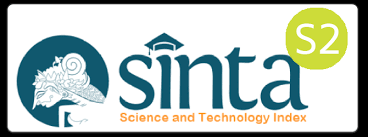Pharmacogenomic Considerations In Propofol: A Review
Abstract
Pharmacogenomics is one of the pivotal fields of science in the era of precision medicine. It helps provide an understanding of what causes the differences in terms of pharmacokinetics and pharmacodynamics of a particular drug in patients. Hence, this leads to better efficacy. This branch of medicine also applies to sedative drugs in the anesthesia field, one of which is propofol. Changes in propofol pharmacokinetics and pharmacodynamics properties might lead to toxicity and inadequate sedation. This review wishes to better understand how pharmacogenomics is applied in anesthesia, especially in propofol, one of its most commonly used medications.
Keywords
Full Text:
PDFReferences
Pharmacogenomics: What does it mean for your health? | CDC. Cdc.gov. (2022). Retrieved 9 February 2022, from https://www.cdc.gov/genomics/disease/pharma.htm.
P, D., S, T., S, D., Awad, H., & JP, K. Pharmacogenomics applications in perioperative medicine. Journal Of Translational Science. 2018;4(5). https://doi.org/10.15761/jts.1000228
Walton, Thomas.. Omic and anesthesia: pharmacogenomics, proteomics, and metabolomics. Anesthesia and intensive care medicine, 2019, 1-6. https://doi.org/10.1016/j.mpaic.2019.01.019.
Jhun, Ellie. 2019. Pharmacogenomic considerations for medications in the perioperative setting. Pharmacogenomics (2019) 20(11), 813–827.
Dib P, Tung SR. 2018. Pharmacogenomics applications in perioperative medicine. Journal of Translational Science (2018) Volume 4(5): 1-6. DOI: 10.15761/JTS.1000228
Bach-Rojecky, Lidija. Challenges in anesthesia personalization: resolving the pharmacogenomic puzzle. Future Medicine.2019;16;6. doi: 10.2217/pme-2019-0056
Awad, Hamdy. Potential role of pharmacogenomics testing in the setting of enhanced recovery pathways after surgery. Pharmacogenomics and Personalized Medicine. 2019:12 145–154. http://doi.org/10.2147/PGPM.S198224.
Dabbagh, Ali. 2021. Personalized Medicine in Anesthesia, Pain and Perioperative Medicine. Switzerland; Springer.
Butterworth, J., Mackey, D., & Wasnick, J.. Morgan & Mikhail’s. Clinical Anesthesiology, 2018; 8e (6th ed., pp. 303-304). McGraw-Hill Education LLC.
Sahinovic, MM; Michel M. R. F. Struys; Anthony R. Absalom. Clinical Pharmacokinetics and Pharmacodynamics of Propofol. Clinical Pharmacokinetics. 2018;57:1539–1558.
Sahinovic MM. Intravenous drug dose optimization and drug effect monitoring in anesthesia. Groningen: Rijksuniversiteit Groningen; 2017.
Colin P, Eleveld DJ, van den Berg JP, Vereecke HEM, Struys MMRF, Schelling G, et al. Propofol breath monitoring as a potential tool to improve the prediction of intraoperative plasma concentrations. Clinical Pharmacokinetics. 2016;55:849–59.
Adapa RM. Consciousness and anesthesia. In: Absalom AR, Mason KP, editors. Total intravenous anesthesia and target-controlled infusions. Cham: Springer International Publishing; 2017. p. 63–78.
Hara M, Masui K, Eleveld DJ, Struys MMRF, Uchida O. Predictive performance of eleven pharmacokinetic models for propofol infusion in children for long-duration anesthesia. British Journal of Anaesthesia. 2017;118:415–23.
Dinis-Oliveira, R. Metabolic Profiles of Propofol and Fospropofol: Clinical and Forensic Interpretative Aspects. Biomed Research International, 2018, 1-16. https://doi.org/10.1155/2018/6852857
Pavlovic, D., Budic, I., Jevtovic Stoimenov, T., Stokanovic, D., Marjanovic, V., Stevic, M., Slavkovic, M., & Simic, D. The effect of ugt1a9, cyp2b6, and cyp2c9 genes polymorphism on propofol pharmacokinetics in children. Pharmacogenomics and Personalized Medicine, 2020;Volume 13, 13–27. https://doi.org/10.2147/pgpm.s231329
Xie, S., Ma, W., Guo, Q., Liu, J., Li, W., McLeod, H., & He, Y. The pharmacogenetics of medications used in general anesthesia. Pharmacogenomics, 2018;19(3), 285-298. https://doi.org/10.2217/pgs-2017-0168 (5
Luizon, M., Pereira, D., & Tanus-Santos, J. Pharmacogenetic relevance of endothelial nitric oxide synthase polymorphisms and gene interactions. Pharmacogenomics, 2018;19(18), 1423-1435. https://doi.org/10.2217/pgs-2018-0098
Zhang, L., Zheng, Z., Ma, W., Zhang, S., Xue, F., & Wang, H. et al. The Effects of Gene Variations of GABRA2, GABRB1, GABRG2, GAD1, and SLC1A3 on Patients with Propofol During Anesthesia Induction. Pharmacogenomics And Personalized Medicine, 2021;Volume 14, 1185-1192. https://doi.org/10.2147/pgpm.s326885
Eugene, AR. CYP2B6 Genotype Guided Dosing of Propofol Anesthesia in the Elderly Based on Nonparametric Population Pharmacokinetic Modeling and Simulations. International Journal Of Clinical Pharmacology & Toxicology, 2017; 242-249. https://doi.org/10.19070/2167-910x-1700041
Zhang, Y., Li, Y., Wang, H., Cai, F., Shen, S., & Luo, X. Correlation of MDR1 gene polymorphism with propofol combined with remifentanil anesthesia in pediatric tonsillectomy. Oncotarget, 2017;9 (29), 20294 - 20303. https://doi.org/10.18632/oncotarget.23168
DOI: https://doi.org/10.15416/pcpr.v8i1.38749
Refbacks
- There are currently no refbacks.








